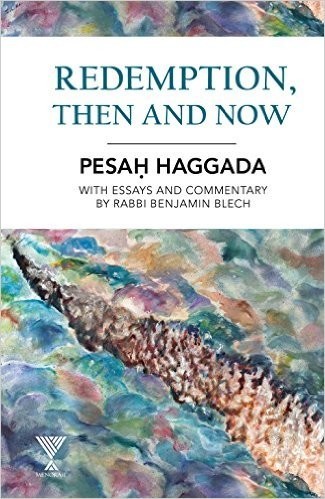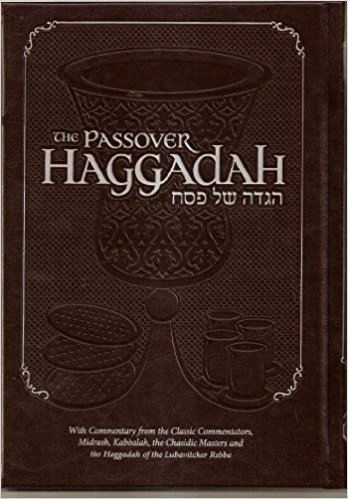Pesach Literature 5777
Part 1
Now, can you just imagine this: another new Haggadah for this year’s Pesach celebrations. And its author, Rabbi Benjamin Blech, has been a rabbi right here on the South Shore, at the Young Israel of Oceanside, for 37 years.
As tradition has it, every year we witness a new group of Haggadahs themed to inspire us to new spiritual teachings, insights, and halachic rulings and assist us to better appreciate the deeper meanings of this holiday.
From Rabbi Blech’s work, “Redemption, Then and Now: Pesah Haggada with Essays and Commentary” (Menorah Books), I will focus on two aspects of the volume’s lead essay, “The Five Most Important Things About Passover.” The five things are:
•The Importance of Memory
•The Importance of Optimism
•The Importance of Faith
•The Importance of Family
•The Importance of Responsibility
About optimism, Rabbi Blech teaches us the following:
“To study the Passover story in depth is to recognize that the most difficult task Moses had to perform was not to get the Jews out of Egypt, but to get Egypt out of the Jews. They had become so habituated to their status as slaves; they lost all hope that they could ever improve their lot. Without hope they would have been lost.”
Utilizing a little known chapter in early American history, Rabbi Blech cites the following:
“In the story of America’s Great Seal, a particularly relevant chapter is the imagery suggested by Benjamin Franklin in August 1776. He chose the dramatic scene described in Exodus where people confronted a tyrant in order to gain their freedom:
“Pharaoh sitting in an open Chariot, a Crown on his head and a Sword in his hand, passing through the divided Waters of the Red Sea in Pursuit of the Israelites: Rays from a Pillar of Fire in the Cloud, expressive of the Divine Presence and Command, beaming on Moses who stands on the shore and extending his hand over the Sea causes it to overwhelm Pharaoh.
“The motto he suggested, the words based on the Passover story, inspired George Washington and the founding fathers of the American colonies to rebel against their British oppressors: ‘Rebellion to Tyrants is Obedience to G-d’.”
Rabbi Blech projects this example of optimism as a most important component to the liberation of the Exodus.
The next example of Rabbi Blech’s teaching is that of the importance of family. We all know that one of the most important touchstones of the stability of society is the stability of the family structure. With this caution in mind, consider the following:
“Passover taught us yet another major truth: the way to perfect the world is to begin with our own families. G-d built His nation by commanding not a collective gathering of hundreds, of thousands in a public square but by asking Jews to turn their homes into places of family worship at a Seder devoted primarily to answering the questions of children. It seems all too obvious. Children are our future. They are the ones who most require our attention. The home is where we first form our identities and discover our values.”
Further on the author tells us this:
“All of the Torah follows only after we understand the primacy of family. The world may mock Jewish parents for their overprotectiveness and their child-centered way of life — but they are the ones chiefly responsible for the extraordinary achievements of their progeny. At the Seder table, the children are encouraged to be the stars, and their questions are treated with respect. And that is the first step to developing Jewish genius.”
I conclude this segment with this observation:
“The Haggadah is overwhelmingly the most printed book in the history of Jewish book publishing.”
Why? I leave that up to you, my dear reader, to answer. And there is more … read on and learn.
In a recent review, I cited the role that the Book of Psalms, Tehillim, plays in the Jewish liturgy, most recently in that of the Purim holiday. Now I’ll discuss Tehillim’s role in the Pesach liturgy, especially the Haggadah.
“The Passover Haggadah: With Commentary From the Classic Commentators, Midrash, Kabbalah, the Chassidic masters, and the Haggadah of the Lubavitcher Rebbe” (Kehot, 2011), by Rabbi Yosef Marcus, presents a comprehensive view of the meaning of the Seder experience.
As with his commentary on the Psalms, Rabbi Marcus parses the text of this work for its practical application to our spiritual needs. Consider his commentary to Psalms 113-114, the lead Psalms recited before the Seder meal:
“The Egyptian Hallel
“This Hallel — who recited it? Moses and the Israelites recited it when they stood at the sea. The Talmud refers to this Hallel as ‘The Egyptian Hallel,’ since it relates to the Exodus. It is forbidden to read it in its entirety on a typical day; one can only recite it on the festivals in commemoration of the miracles G-d has done for us.”
Further on Rabbi Marcus teaches us the following:
“An Unusual Master
“G-d treated His servants in an unusual manner: A conventional master buys servants who will tend to his needs, transport him, and hold a lamp before him to illuminate his path. But G-d behaved differently with His servants Israel after the Exodus: He tended to their needs — washed them, anointed them with oil, clothed them, carried them, and lit a path before them. (Shemot Rabbah 20:11)
“Beyond Transcendence
“The nations of the world relegated G-d to the heavens. They defined G-d by His transcendence and assumed that he could not be concerned with earthly matters – His glory is upon the heavens. But in truth, G-d is not limited by his ‘transcendence.’ Despite His inherent exaltedness, He lowers Himself to examine the affairs of the earthly — ‘He dwell on high yet looks down so low’ (Abarbanel).”
I urge you to read and learn from Rabbi Marcus’ teachings so as to enable you to better understand the sacred texts that inhabit your own personal Haggadahs.

 46.0°,
Light Drizzle
46.0°,
Light Drizzle 







